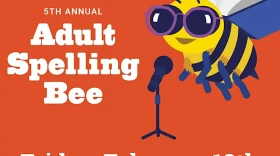Growing food doesn’t always occur in the country. From city-based commercial operations like Growing Power to personal backyards or even balcony herb and vegetable gardens, urban agriculture in Wisconsin’s largest city is booming.
But no matter where they are, the one thing all gardens have in common is the need for pollination. And when we think of pollination, most of us think of honeybees. The rooftop of Redeemer Lutheran Church on 19th and Wisconsin is host to three flourishing hives. Recent Marquette graduate Maggie Stang is one of the people who helps maintain them.
“I met a beekeeper named Charlie (Koenen)," Stang explains. "He was speaking about the bees in such wonderful, mystical terms, and explaining the ways they pollinate our neighborhood. From that moment on I was absolutely hooked.”
When asked about what makes bees mystical, Stang says that “it’s hard for me to think of another community, another species that creates their own home and their own food and also has a symbiotic, mutually beneficial relationship with basically everything around it.”
Stang says humans can learn a lot from bees. “Every bee has its place in the hive. Every bee does its job to its full extent and being able to see that helps us think about how can our communities be more resourceful? How can our communities be more community oriented in the way that everybody has a place, everybody has a voice, everybody is cared for in a greater way?”






